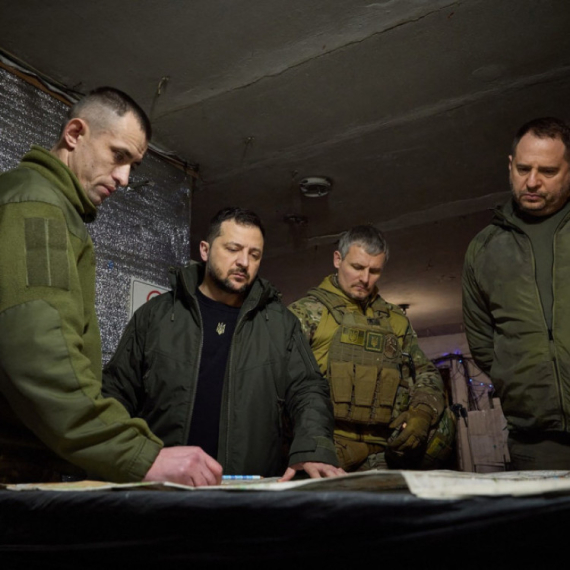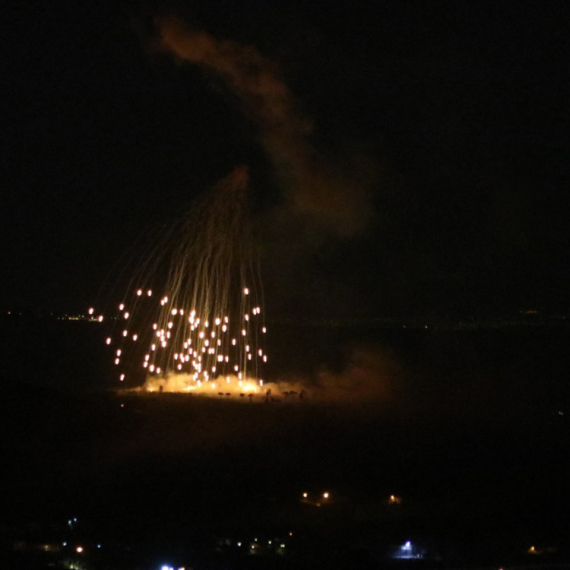U.S. expert: No such thing as civilian target
A U.S. military expert, testifying for the defense of Ante Gotovina, told the Hague judges this week that "there is no such thing as a civilian target".
Sunday, 13.09.2009.
13:03

A U.S. military expert, testifying for the defense of Ante Gotovina, told the Hague judges this week that "there is no such thing as a civilian target". Geoffrey Corn, described by news agencies as "a U.S. colonel", testified on behalf of the former Croatian general, accused of war crimes against Serb civilians, to say that "targets are always military". U.S. expert: No such thing as civilian target For this reason, Corn sees Gotovina's order to place Serb towns under fire as merely a wrong formulation by one of his administrative staff, since, according to him, "Gotovina obviously meant hitting exclusively military targets". The Hague prosecution claims that Gotovina should not have allowed artillery to fire on urban areas, and that the dead civilians are proof of the crime and of the joint criminal enterprise, media in Zagreb, Croatia, are reporting. Corn responded to this by saying: "Collateral victims are not prohibited nor are they a crime, unfortunately they are common in war." The American witness said that "the fact is there are such victims, especially when the enemy is defending from urban areas". "What civilian targets, there's no such thing, targets are always military," reports say Corn told he panel of judges, and went on to explain that it is always up to military commanders to appraise whether the expected military gains would outweigh possible civilian losses. He likened the August 1995 Croatian military onslaught against ethnic Serb areas, known as Operation Storm, to the 1999 NATO attacks on Serbia, saying that orders to shell targets in the Krajina towns of Knin, Obrovac, Gracac and Drvar were comparable to NATO's attacks, carried out with hundreds of cruise missiles and bombs, against Belgrade. The witness went on to comment on the transcripts of former Croatian President Franjo Tudjman's Brioni meeting with the top military and police officials on July 31, 1995. Those remarks, Corn said, were "schizophrenic, since on the one hand, he was trying to figure out how to expel Serb civilians, and on the other, he didn’t want to draw criticism from the international community". But Sense news agency reminds that the prosecution claimed that Tudjman's address "was not schizophrenic at all, as he had actually planned to reconcile those two things: to expel the Serbs from Krajina and create the illusion that their human rights were respected in the eyes of the international community". To corroborate this, the prosecution showed a part of the transcript where the Croatian president asks for leaflets to be spread among the civilians in Krajina with a description of escape routes towards Serbia, guaranteeing their "so-called human rights" at the same time. But according to Corn, this is no proof that Gotovina agreed to violate the provisions of the international law of war. "It was not the first time in the history of warfare for the highest political figure in a state to put pressure on the army to do something, only to have the military commanders find a way around it in practice," the witness said. The American also concluded that Gotovina was "trying to calm the president all the time", telling him, "You have presented the strategic aims, I am the operative commander, allow me to make my plans to defeat the enemy, don't worry, I can defeat the enemy." He also told the court that "civilians departing" – in the case of Operation Storm some 250,000 Serbs were expelled from their homes – is not illegal. "It is common, just as the effect is has on the enemy," said Corn, who served as special assistant for law of war matters to the U.S. Army Judge Advocate General.
U.S. expert: No such thing as civilian target
For this reason, Corn sees Gotovina's order to place Serb towns under fire as merely a wrong formulation by one of his administrative staff, since, according to him, "Gotovina obviously meant hitting exclusively military targets".The Hague prosecution claims that Gotovina should not have allowed artillery to fire on urban areas, and that the dead civilians are proof of the crime and of the joint criminal enterprise, media in Zagreb, Croatia, are reporting.
Corn responded to this by saying: "Collateral victims are not prohibited nor are they a crime, unfortunately they are common in war."
The American witness said that "the fact is there are such victims, especially when the enemy is defending from urban areas".
"What civilian targets, there's no such thing, targets are always military," reports say Corn told he panel of judges, and went on to explain that it is always up to military commanders to appraise whether the expected military gains would outweigh possible civilian losses.
He likened the August 1995 Croatian military onslaught against ethnic Serb areas, known as Operation Storm, to the 1999 NATO attacks on Serbia, saying that orders to shell targets in the Krajina towns of Knin, Obrovac, Gračac and Drvar were comparable to NATO's attacks, carried out with hundreds of cruise missiles and bombs, against Belgrade.
The witness went on to comment on the transcripts of former Croatian President Franjo Tuđman's Brioni meeting with the top military and police officials on July 31, 1995.
Those remarks, Corn said, were "schizophrenic, since on the one hand, he was trying to figure out how to expel Serb civilians, and on the other, he didn’t want to draw criticism from the international community".
But Sense news agency reminds that the prosecution claimed that Tuđman's address "was not schizophrenic at all, as he had actually planned to reconcile those two things: to expel the Serbs from Krajina and create the illusion that their human rights were respected in the eyes of the international community".
To corroborate this, the prosecution showed a part of the transcript where the Croatian president asks for leaflets to be spread among the civilians in Krajina with a description of escape routes towards Serbia, guaranteeing their "so-called human rights" at the same time.
But according to Corn, this is no proof that Gotovina agreed to violate the provisions of the international law of war.
"It was not the first time in the history of warfare for the highest political figure in a state to put pressure on the army to do something, only to have the military commanders find a way around it in practice," the witness said.
The American also concluded that Gotovina was "trying to calm the president all the time", telling him, "You have presented the strategic aims, I am the operative commander, allow me to make my plans to defeat the enemy, don't worry, I can defeat the enemy."
He also told the court that "civilians departing" – in the case of Operation Storm some 250,000 Serbs were expelled from their homes – is not illegal.
"It is common, just as the effect is has on the enemy," said Corn, who served as special assistant for law of war matters to the U.S. Army Judge Advocate General.



























































Komentari 23
Pogledaj komentare